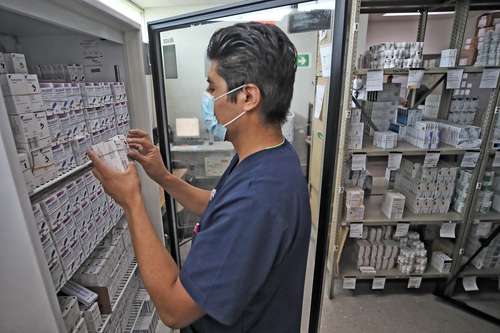▲ The National Reference Laboratory released more than 106 million vaccines against SARS-CoV-2 during the covid-19 pandemic, highlighted the Ibero-American Network of Medicines Authorities.Photo Marco Pelaez
angeles cruz martinez
Newspaper La Jornada
Monday, November 28, 2022, p. twenty-one
In 1997, the Network of Ibero-American Medicines Authorities (EAMI) was created, whose objective is for 22 countries in the region to exchange technical information and generate knowledge that guarantees access to safe, effective and quality medicines and devices.
Mexico is part of this mechanism, and a few days ago it was chosen to direct it, through the Federal Commission for the Protection against Sanitary Risks (Cofepris).
Information from the Ministry of Health (Ssa) highlights that the designation recognized the leadership of the national regulatory authority, since during the covid-19 pandemic it demonstrated that its National Reference Laboratory analyzed and released more than 106 million vaccines against SARS-CoV-2 virus, among other aspects.
Of these biologicals, some part of their production process was carried out in national territory, specifically the packaging of the Cansino Biologics laboratory in China, which was carried out by the national company Drugmex. Also, the AstraZeneca vaccine from England, which was manufactured through a collaboration agreement between Argentina and Mexico.
The EAMI Network arose due to the globalization of the economy, trade and scientific advances and the need for Ibero-American countries to have a bridge of exchange with Europe and Latin America, indicates information from the Network.
Since the first meeting, held in 1997, 12 more meetings have been held, in the last of which – last week in Honduras – Mexico was chosen to preside over the organization for the next four years.
Cofepris presented its work plan, which contains three specific objectives: improve the use of tools for the exchange and timely access to information; increase the technical capacity in the EAMI Network based on good regulatory practices, and provide continuity to the priority thematic lines identified in the region.
Together with Mexico, the health authorities of Spain, Portugal, El Salvador, Panama and Peru will work together as members of the network’s secretariat to continuously strengthen the regulatory systems in favor of the health of the population of the Ibero-American region, indicated the Cofepris.















